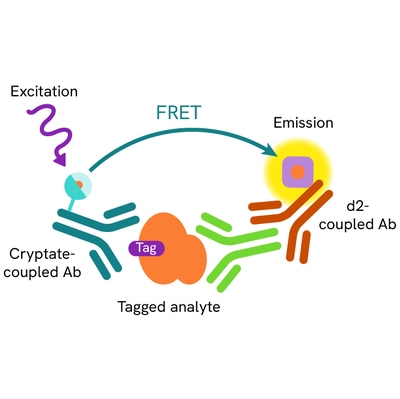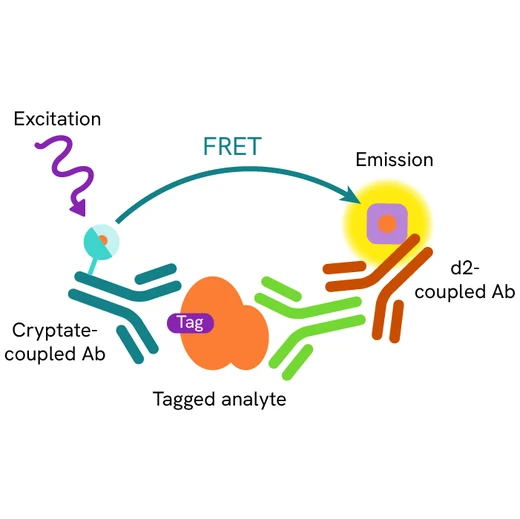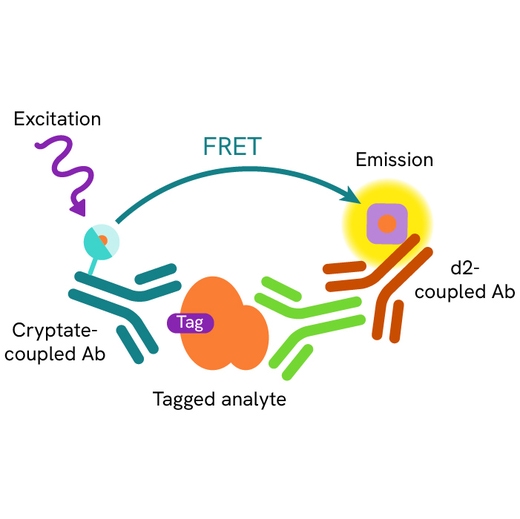

HTRF Hybridoma (GST-antigen) Binding Kit, 500 Assay Points








| Feature | Specification |
|---|---|
| Application | Protein-Protein Interaction |
| Sample Volume | 5 µL |









Product information
Overview
The hybridoma technology is still the most common technique used to generate antibodies for therapeutic applications. The generation and screening of hybridomas from an immunized animal involve a time-consuming process and sample only a fraction of the antibodies generated during the adaptive immune response. Therefore, screening hybridoma supernatants for their ability to efficiciently bind the target of interest has become crucial.
How it works
Assay Principle
The mouse hybridoma supernatant binding to a GST-tagged antigen is measured using a sandwich immunoassay, involving an anti-GST antibody labeled with an HTRF donor and an anti-mouse antibody labeled with an acceptor dye. The binding of murine antibodies produced by the hybridoma clone to their GST-tagged target generates an HTRF Signal.

Assay Protocol
The HTRF hybridoma binding kit can be run in a 96- or 384-well low volume white plate (20 µL final). As described here, samples are dispensed directly into the assay plate. The GST antigen is then added, followed by the dispensing of the HTRF reagents: the Anti GST antibody labeled with europium cryptate and the anti mouse antibody labeled with d2. The protocol can be further miniaturized or upscaled by simply resizing each addition volume proportionally.

Assay validation
GST tagged beta catenin binding assay
Binders of Beta catenin fused to the GST tag was detected using an anti GST europium cryptate antibody and an anti mouse d2 antibody.
The hybridoma binding kit protocol was performed using 5 nM GST tagged Beta catenin protein for 1H at room temperature.
The graph shows the signal obtained with a positive sample (red) and a negative sample (orange).
The Hybridoma (GST antigen) control was also used to validate the experiment.

Specifications
| Application |
Protein-Protein Interaction
|
|---|---|
| Brand |
HTRF
|
| Detection Modality |
HTRF
|
| Product Group |
Kit
|
| Sample Volume |
5 µL
|
| Shipping Conditions |
Shipped in Dry Ice
|
| Target Class |
Binding Assay
|
| Technology |
TR-FRET
|
| Therapeutic Area |
Inflammation
Neuroscience
Oncology & Inflammation
|
| Unit Size |
500 assay points
|
Video gallery
Resources
Are you looking for resources, click on the resource type to explore further.
This guide provides you an overview of HTRF applications in several therapeutic areas.
Chimeric antigen receptor (CAR) T-cell therapy has transformed the field of immuno-oncology providing a novel approach to treating...


Loading...
How can we help you?
We are here to answer your questions.






























